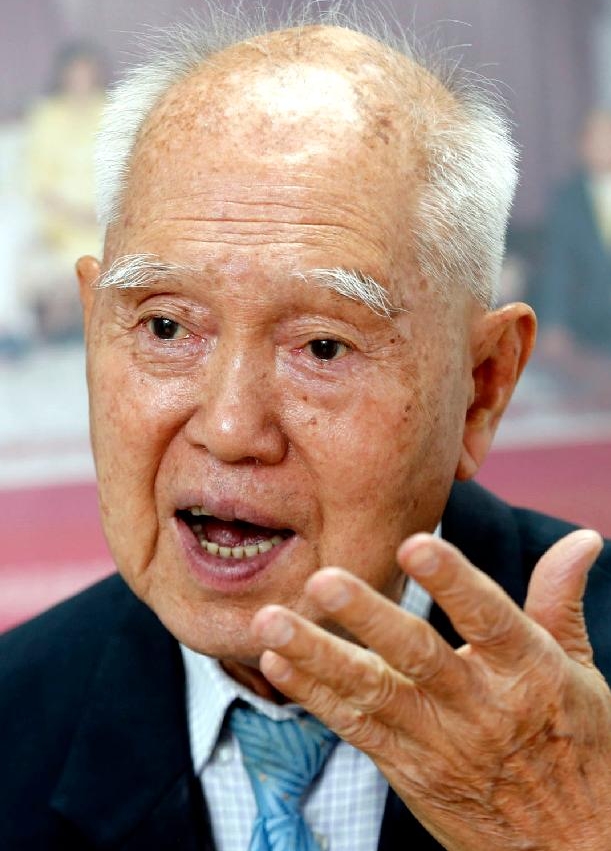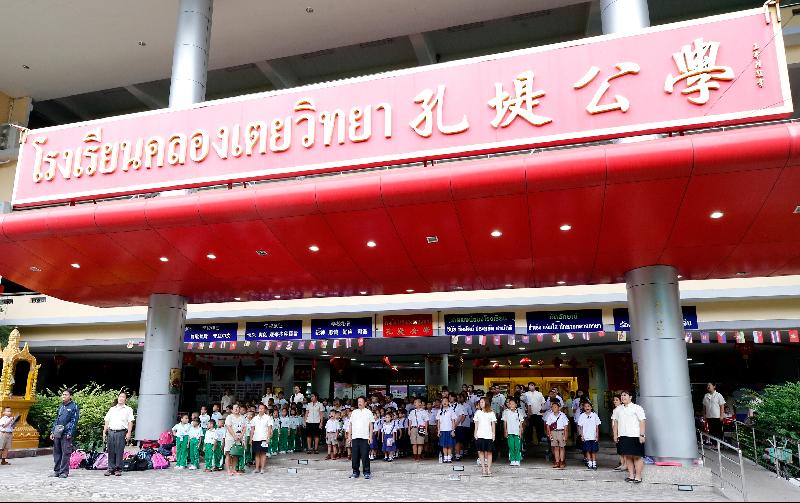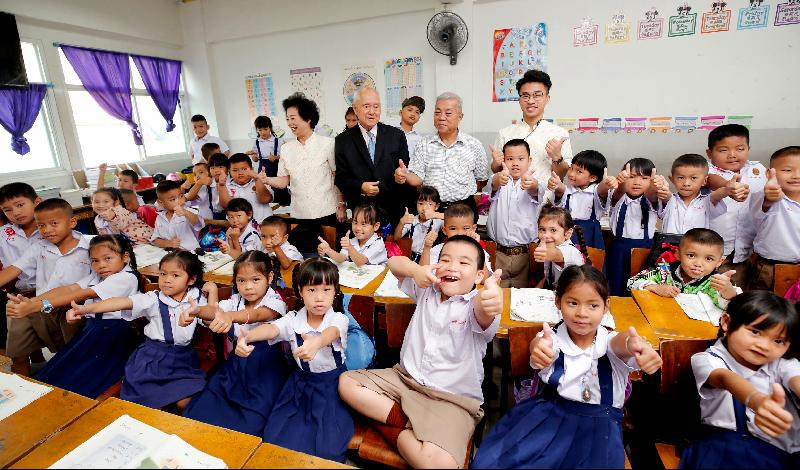Historically, to strengthen nationalism and assimilate the local Chinese community, the Thai governments have imposed restrictions on the country's Chinese language education policy. As a result, at least two generations of Chinese Thai have lost the opportunity to learn the Chinese language.
After the successive restrictions from the administrations over the decades, Chinese Thais are almost completely assimilated into the local society, and only until more recent years has the country seen the resurgence in efforts to revitalize Chinese language education.
Chinese schools closed down

Chinese Teachers (Thailand) Association chairman Dr Vichit Lolurlert recalled that before World War II there were dozens of Chinese schools in Bangkok. However, the government later felt that these schools were instilling communist thinking into the students and adopted various measures over time to restrict their operation.
When Dr Lolurlert's primary school was closed down by the government in 1948, the school's principal and the teachers were all arrested for being suspected to be communist sympathizers.
"They later traveled from northern Thailand to China to join the revolution there.
"Chinese schools were closed down one after another, or the students' daily time of learning the Chinese language was restricted to only a few days in a whole month.
"The country's Chinese education was completely halted for more than three decades from 1949 to 1980, robbing two generations of Chinese Thais the opportunity to learn their mother tongue.
"Many young Chinese don't even speak the language nowadays!"
Due to the rise of China as an economic power in late 1980s, the Thai government decided to lift the restrictions by allowing Chinese schools to reopen in the country.
"But the problem is, there were very few Chinese teachers left, and many were too old to teach. Moreover, they were not highly qualified, most having only primary school qualifications."
As such, Dr Lolurlert started the "learn Chinese" campaign and set up Chinese Teachers (Thailand) Association. He invited professors from Beijing to train local Chinese teachers, and sent local teachers to China to learn the language before coming back to Thailand to teach the students.
"Chinese schools began to flourish in large cities but remote rural villages and smaller towns didn't have that opportunity.
"So I sent some of the high school graduates to China, and encouraged government officials to learn Chinese in China as well.

"Today, we have many Chinese interpreters and translators in most government departments, and this makes communication much easier."
Every year, there are some 200 Chinese language teachers from Thailand travel to Xiamen, Beijing or Guangzhou to learn Chinese, with scholarships offered by the Chinese State Council. Along with expatriate teachers, Chinese language education is beginning to revive in Thailand, but the road ahead is still very long.
In the past most parents were reluctant to send their children to learn Chinese in China because they knew very little about the country, but today, they rush to send their children to China because they know the value and prospects of the language in future.
In Thailand, the monthly income of a Chinese school teacher is about 15,000 bahts. An employee who understands the Chinese language gets four to five times higher salary than the local workers, while a Chinese language tour guide can make tens of thousands a month. China-based companies, meanwhile, pay four to five time more to hire local employees well versed in the Chinese language.
Today, there are about 200 Chinese schools in Thailand, and students get to learn five hours of Chinese a week.
There are two types of Chinese schools in Thailand: fully subsidized and private schools.
"Chinese language education will only get better and better in the future. There are about 20,000 Thais studying in China today."
Cultural gem
The hundred-year-old Matsu temple along the Chao Phraya River is today a popular site for Instagrammers. It not only has hundred-year-old wall paintings but also stylish shops.
Lhong 1919's history could be traced back to King Rama IV in the 1850s. In 1919, the building was bought by the Huang Li family from Shantou in China's Guangdong province. A rice mill, warehouse and staff hostel were subsequently built there. A trading company was set up to export rice to China and import silk, tea leaf and other dried foods for the local noble class.
"The place used to be very prosperous 150 years ago. Many Chinese attempting to escape the war in China traveled here by sea. The Huang Li family offered free medical treatment to poor local Chinese people and gave them job opportunities. it later became an important gathering place for the local Chinese people," said Lhong 1919 chief executive officer Dr Saran Wanglee.
Unfortunately the antiquated building was later abandoned. The descendants of the Huang Li family then hired professionals to restore the building and they were shocked to find many hidden ancient paintings on the walls, window frames, etc.
Dr Wanglee knew it was going to be a cultural gem, and decided to restore the building to its glorious past.
Lhong 1919 reopened for visitors on November 3, 2017, and is today a living legacy of recent Chinese immigration history and an emerging must-see cultural creative park along the River of Kings.

ADVERTISEMENT
ADVERTISEMENT


































